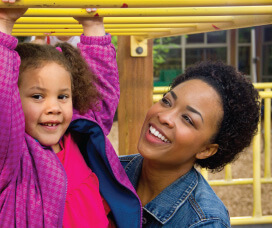By Rosalind Sedacca, CDC
Back to school time is always stressful for families. However, returning to school after their parents have separated or divorced can be especially difficult for any child.
As a parent, you can ease the transition, by making the school your ally. This will open the door to the many resources available to you through the school. The key here is in forming a cooperative relationship with key personnel.
Making your child’s teachers aware of your divorce and related changes in your home environment and scheduling will be helpful both for them and your child. That’s because school is really a second home for children in our culture.
Regardless of their age, children can’t be expected to turn off their emotions during or after a divorce any more than their parents can. Fear, insecurity, shame, guilt and other emotions are usually triggered when a parental marriage ends. These complex feelings can affect a child’s focus, self-esteem, relationships with their friends as well as their academic performance.
Many children trust and feel safe with their teachers. By talking to the teacher in advance and explaining the status of your post-divorce arrangements, you can go a long way toward helping your child feel more secure or less alone.
Here are some tips for making the most of your school system and professional educators:
- A compassionate teacher can keep an eye open for signs of distress or depression in your child. You can provide some messages for the teacher to share should they feel it appropriate to talk with your child about their feelings. A trusted teacher can remind your child that he or she is not at fault … that they aren’t the only students at school who are going through these challenging times … and that life will move back into a more comfortable place before too long. This can be helpful in reinforcing prior conversations you’ve already had with your child. It also reassures your child that the divorce is not a big shameful secret. It can be discussed candidly and openly without shame.
- It’s also wise to speak with your child’s guidance counselors. These professionals are trained to handle challenging circumstances and can be an ally who you and your family can count on for support and suggestions.
- The key here is to bring these educators onto your team on behalf of your child. With their eyes open, it will be easier to detect signs of depression, aggression or other behavior changes that need to be brought to your attention and discussed as soon as possible.
- Some schools offer support groups for children coping with divorce issues. It can be very helpful for children to talk to one another, sharing their fears and other anxieties during or after the divorce. Knowing they’re not alone, that they’re accepted and that others are facing or have experienced the same type of family dynamics gives children a sense of belonging. It’s also an opportunity to vent and make new friends with children who can empathize with them. The less alone a child feels, the better they are able to accept the challenges they will be facing in the weeks and months ahead.
Talk to your child before sending them back to school. Discuss any changes in routine or scheduling they can expect. Also let them know whom they can talk to at school if they are feeling sad or have questions about adapting to life at school post-divorce. School can be your child’s best friend at this time – and a great support system for your family – if you take advantage of all the resources available.
* * *
Rosalind Sedacca, CDC is a Divorce & Parenting Coach, founder of the Child-Centered Divorce Network and author of How Do I Tell the Kids about the Divorce? A Create-a-Storybook Guide to Preparing Your Children — with Love! For Rosalind’s free ebook on Post-Divorce Parenting, coaching services, articles and other valuable resources on divorce and parenting issues, go to: www.childcentereddivorce.com.
© Rosalind Sedacca All rights reserved.






Your insights on how to head back to school help parents truly support their children. Thanks for outlining these.
We also offer our parents tools to support their cooperation. We routinely recommend online organization sites like 2houses.com can help parents coordinate schedules, share doctor notes, track finances, and even share photos from outings. The neutrality helps parents who struggle to interact find a place to leave information. The more parents keep each other informed, the fewer misunderstandings that create conflict. Even more, busy parents have a place to leave or look for the information they need. So, when one parent gets the note about a field trip–the other parent sees the trip on the calendar and gets an update about returning permission slip. No more miscues as children move from one house to another.
I hope this helps parents work together.
Thanks for this thoughtful comment. I highly endorse online scheduling tools as very valuable for co-parenting support to reduce conflict and ease daily life.
I like how you mentioned that making your child’s teachers aware of your divorce can be beneficial. My husband and I are going to be separating, and my biggest worry is how that will affect my two daughters. I’ll definitely make sure to talk to their teachers about it so they’re aware of the situation and can plan accordingly.